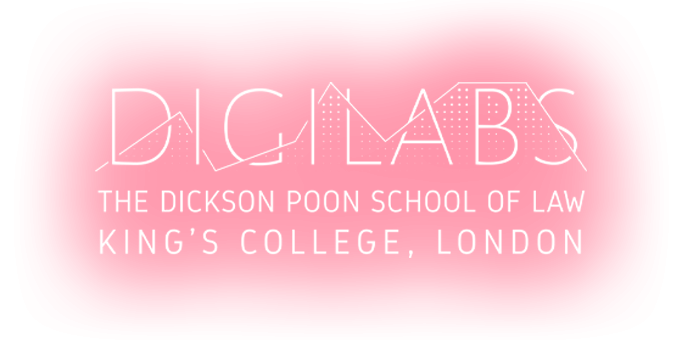Legal Opinion on the Best Possible Digital Tools, Including Blockchain Technology, to Enhance FREDÉLO Ltd.'s IP Management, to Fight Online Counterfeit Product Sale of FREDÉLO Ltd. Products and to Enhance FREDÉLO Ltd.'s Sustainable Ideology
Florence Haverhals
This legal opinion provides FREDÉLO, a fictitious luxury fashion brand, with in-depth recommendations on how it can structure and reinforce its intellectual property (IP) enforcement as well as how it can address current sustainability challenges within the luxury fashion industry using online digital solutions, such as blockchain technology. Suggestions in this legal opinion include registering designs through WIPO PROOF, collaborating with LVMH’s Aura blockchain network to adopt an industry-wide provenance authentication mechanism, creating a public-private partnership with enforcement authorities to combat the sale of counterfeit Fredélo products, and creating non-fungible tokens of a limited edition Fredélo bag to elevate Fredélo’s designs into art. Furthermore, adopting blockchain technology creates an excellent solution to create transparency and traceability in Fredélo’s supply chain.
Blacklisting: A New Effective Digital Tool Against Counterfeit Sales Online (Legal Opinion)
Daria Chernysh
This Legal Opinion introduces the Blacklisting digital tool as one of the most innovative mechanisms to fight against counterfeiting online. Additionally, this document serves as a practical guide to online businesses for implementing the tool, and its step-by-step integration into the existing digital anti-counterfeiting systems, being illustrated with the recent successful examples of such implementation and integration.
A critical discussion of current online copyright enforcement and of a comprehensive solution to overcome its shortcomings
Stephan Lehmann
This paper critically assesses the current copyright enforcement system as increasingly oppressive with major shortcomings in its actions against users, platforms and intermediaries. It poses three solutions: a content flat-rate that would lead to decriminalisation amongst other benefits, a public awareness campaigns which would raise acceptance for the content flat-rate, and shortening the terms of copyright protection.
Cultural Copycats - Misrepresentation or Inspiration?
Noa Naaman
Recently, examples of brands have emerged that are exploiting false or misleading connections to reputable geographical area’s as a marketing tool. This Legal Opinion explores the various possibilities to prevent these cultural copycats from using such cultural indications, a definition for elements, features or expressions that evoke a link to a geographically determined culture. In the current legal framework, especially that of intellectual property rights and unfair competition law, there are corresponding rationales that can be found to justify protection of stakeholders against cultural copycats. The framework can however be considered to fragmented in order to properly and efficiently enforce protection; hence this Legal Opinion recommends international acknowledgement of protection against deceptive use of cultural indications under unfair competition law. The legal test that this Opinion suggest is built around brand clarity and consumer perception as leading components.
Trade Mark Enforcement in Social Media
Zhonghu Yang
The social media platform has become one of the primary tools for advertising and marketing right now. However, trademark infringement caused by brand hijacking, trademark dilution, and the proliferation of counterfeit goods occurs frequently. This article will discuss the enforcement of trademarks in social media from aspects mentioned above.
“Normative aspects” of dealing with demand for counterfeit goods and strategies to reduce the demand
Meagan Ryan
Increasingly consumers are normalizing the online purchase of counterfeit goods. This deviation between social and legal norms is occurring for a number of reasons including because of a lack of consumer focused anti-counterfeit measures. Measures to reduce consumer demand for counterfeit goods online include public education campaigns to increase consumer knowledge of harms associated with counterfeits and to increase media literacy as well as white and black lists documenting websites selling authentic and counterfeit goods.
Legal Opinion on the Best Possible Means and Digital Tools for Fazinger to Review and Implement in the Online Battle against Counterfeit Dimiflu throughout the World
Sophie Barnerias
Sales of counterfeited pharmaceuticals have exploded since digititalisation. Opportunities to sell fake medicines are more than ever accessible to any individual and it has disastrous consequences, notably for pharmaceutical brand owners who have difficulty to protect their intellectual property rights. This memorandum seeks to analyse how cooperation with Internet players and cyber law enforcement authorities; the use of serialization and innovative technologies such as the Blockchain; a better education of the public can dramatically provide companies with an effective protection of their best assets in the long term.
WIPO Study on Approaches to Online Trademark Infringements
Frederick Mostert
The study reviews the nature of the global problem of online counterfeits, the common approaches to voluntary measures and the “ratio” principles of intermediary responsibility, the issues of proportionate costs borne by brand owners and platforms, blocking injunctions and other remedies, jurisdiction, the international and cross-border enforcement of judgments, voluntary arbitration, criminal measures, administrative and customs measures, blacklisting and whitelisting.
WIPO Study on IP Enforcement Measures, Especially Anti-Piracy Measures in the Digital Environment
Frederick Mostert and Jane Lambert
This study provides an overview of current approaches to online copyright infringements, focusing specifically on the responses to piracy in the digital sphere across the world. The study explores the global problem of online piracy, the different types of digital tools and administrative measures used by rights holders, online platforms, governments and the judiciary. These digital tools and measures include blocking, notice and take down, notice and stay down, filtering and monitoring, Bad Actor 1 listings, “follow-the-money” principle, public awareness initiatives, codes of conduct and voluntary guidelines, and digital authentication tools such as Blockchain.
